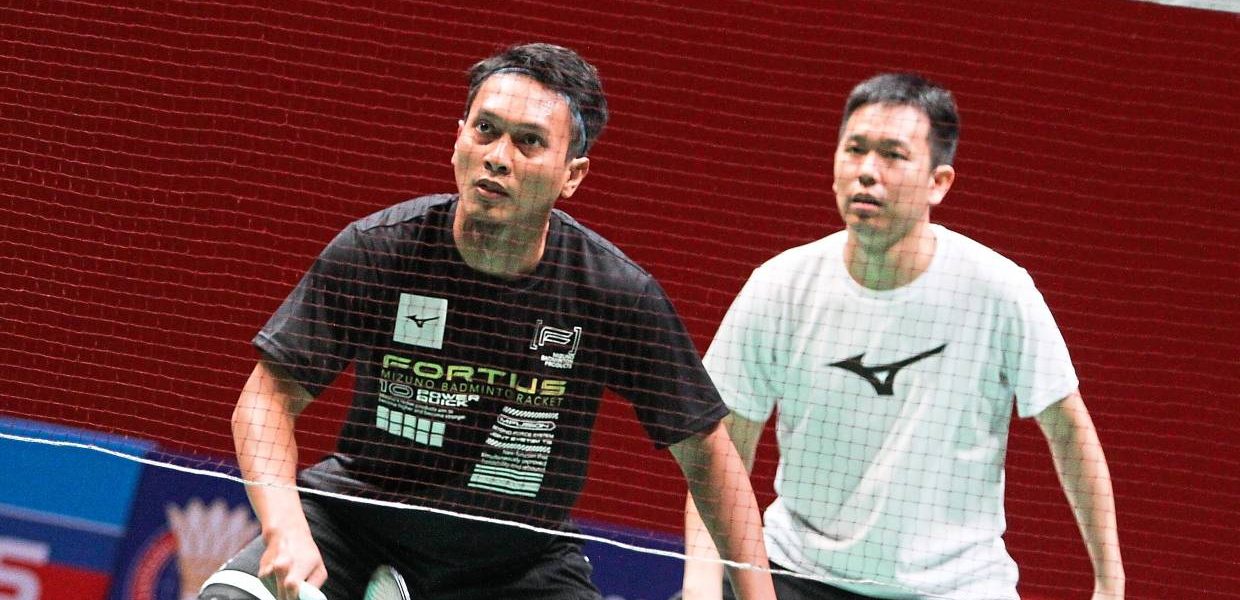MALAYSIA can learn a thing from the Indonesians about getting the best to shine for the country, regardless of whether they are in the national set-up or not.
High-flying world No. 2 Mohammad Ahsan-Hendra Setiawan are a prime example of how support from the national body can propel independents to the top.
Hendra, 35, and Ahsan, 32, parted ways following a disastrous 2016 Rio Olympics campaign which saw them return empty-handed. However, they reunited in 2018 aiming to make up for that disappointment at the Tokyo Games.
Starting from scratch, the duo re-established themselves and made heads turn in 2019 by making it into 11 finals and capturing four titles.
The victories were major ones, including becoming the world champions for the third time in Basel, adding to their previous crowns in 2013 and 2015. They also claimed the All-England and their third World Tour Finals crown.
“We were amazed by ourselves too. Even when we were younger and in our prime, I don’t remember having made it into 11 finals in a season, ” said Hendra, after he and Ahsan cleared their opening hurdle at the Malaysian Masters against Ou Xuanyi-Zhang Nan of China, winning 21-19,24-22.
The veterans are currently plying their trade as professionals, but Hendra believes he and Ahsan were able to rise again thanks to support from All-Indonesia Badminton Association (PBSI).
“We are fortunate to be still enjoying the benefits of training with the national team after becoming professionals, ” said Hendra.
“We also get to enjoy the facilities like the rest in the national team. The only thing we need to manage is our tournament planning and bear our own expenses.
“It’s not cheap. Last year itself, we spent about 1bil rupiah (RM295,000). That’s why we’re really thankful to PBSI for still supporting us, because I know our fellow professionals in Malaysia don’t receive similar perks.
“If there’s one crucial thing we need as independent shuttlers, it’s high-quality sparring. It’s definitely a win-win situation because both parties benefit from it, especially our younger compatriots who get to improve by playing against seniors.”
After Rio, Hendra left PBSI to venture into professional badminton and played with Malaysia’s Tan Boon Heong for a year in 2017.
Asked if he had ever imagined returning to the top with Ahsan, he replied: “We were not that ambitious when we first reunited. All we were aiming for was, maybe try to get back into the top 10. That would have been good enough.
“But to be where we are now is certainly beyond imagination.”
Ahsan-Setiawan’s rousing form has made them one of the early favourites for the Tokyo Olympics but Hendra has played down the favourite tag, saying it’s sealing their place in the Games that matters now.
Besides aiming for his second Olympic gold, Hendra will want to help Ahsan realise the dream of becoming an Olympic winner.
Hendra, who won the men’s doubles gold with Markis Kido in the 2008 Beijing Games, went to Rio with Ahsan – and high expectations – but ended up a big flop when they failed to even clear the group stage.

